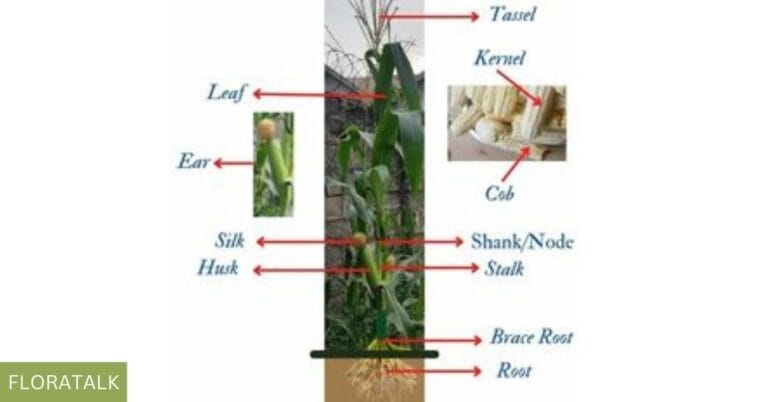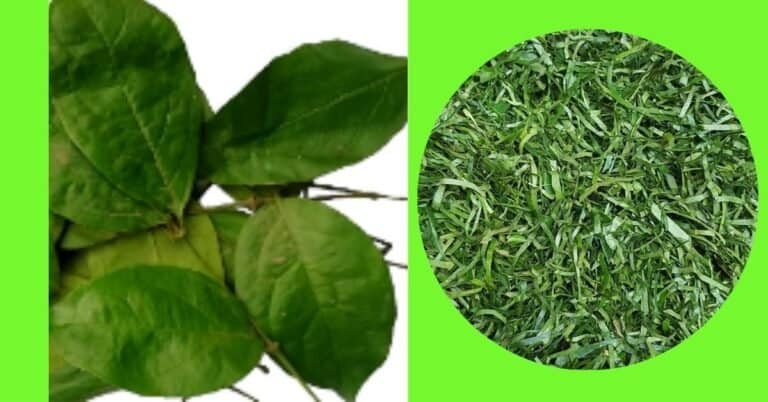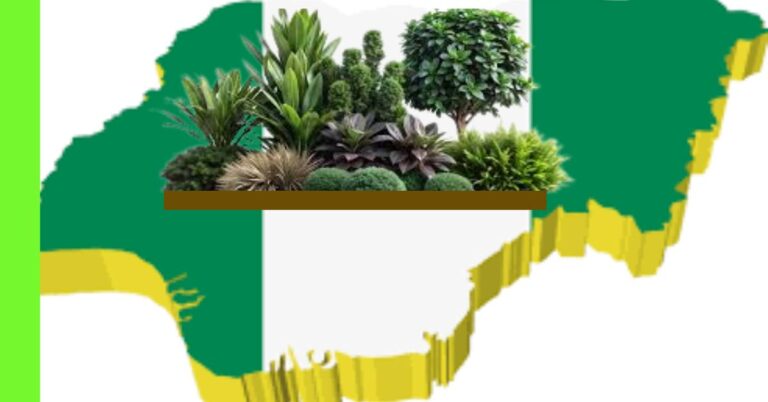Do You Know The Agricultural Institutes In Nigeria

Agriculture is a very important aspect of Nigeria’s economy,
and there are lots of agricultural institutions set up in the country to ensure its smooth running in every sector.
The Federal Ministry of Agriculture and Food Security (FMAFS) oversees all agricultural activity in the country and also regulates the other institutes.
Nigeria has over 15 research institutes that serve various aspects of agriculture in the country.
Agricultural Research Institute
Ever wondered what happens in a research institute? Nigeria has a number of agricultural research institutes.
The Agricultural Research Institute carries out research with the goal of producing and disseminating information for the primary sector’s development as well as problem-solving at the farmer level.
Stakeholders get the study results through dissemination tools and contemporary instructional programs.
Here is a list of agricultural institutes in Nigeria…
The Institute Of Agricultural Research, (IAR)
Location: Samurai, Kaduna
The Institute established in 1922 as the Research Division of the Northern Nigeria Ministry of Agriculture.
Following the establishment of Ahmadu Bello University, the research division with its sub-stations
and assets were transferred to the university under the collective title of Institute for Agricultural Research on the 4th of October 1962.
The Federal Ministry of Agriculture and Rural Development (FMARD) oversees the Institute
While the Agricultural Research Council of Nigeria (ARCN) is responsible for coordinating, supervising, and regulating agricultural research, training, and extension in Nigeria.
Some of its programmes include:
- Agricultural Mechanization Research Programme.
- Artemisia Research Programme.
- Biotechnology Research Programme.
- Cereals Research Programme.
- Cotton Research Programme.
- Farming Systems Research Programme.
- Irrigation Research Programme.
- Legumes and Oilseeds Research Programme.
- Product Development Research Programme.
National Root Crop Research Institute, (NRCRI)
Location: Umudike, Abia
The institute was established on January 1st, 1923 on a 20 hectare plot of land as a British colonial Provincial Experimental farm, under the Colonial
Nigeria Department of Agriculture, with its main office in Moor Plantation, Ibadan.
The Ministry of Agriculture in the Eastern Region of Nigeria was placed under the control of the Director of Agriculture in Enugu after the government departments in Nigeria were regionalized in 1954.
The Institute was absorbed by the Federal Ministry of Agriculture and Rural Development (FMARD) in 1986.
Michael Okpara University of Agriculture, Umudike, occupied the Institute’s Federal College of Agriculture’s space when it was ordered to move to Ishiagu, Ebonyi State, in 1992.
The Agricultural Research Council of Nigeria (ARCN), Abuja, an organization under the FMARD, assumed control of the Institute and its Federal College of Agriculture in 2006.
MANDATE
- Genetic improvement of cassava, yam, cocoyam, Irish potato, sweet potato, and ginger and overall research in improvement of farming system of the South East Zone.
International Institute Of Tropical Agriculture, (IITA)
Location: Ibadan, Oyo.
IITA is an award-winning research-for-development (R4D) organization. It is a worldwide non-profit research-for-development organization with headquarters in Africa that was established in 1967.
The headquarters is located at Ibadan, Oyo State, Nigeria.
IITA’s mission is to create agricultural breakthroughs to address the continent’s most urgent problems, which include hunger, malnutrition, poverty, and the depletion of natural resources.
A worldwide cooperation for agriculture research aimed at ensuring food security, the Consortium of International Agricultural Research Centers(CGIAR) System Organization includes IITA as a member.
IITA has collaborated with both domestic and foreign partners to better livelihoods, strengthen the security of food and nutrition, create jobs, and protect the integrity of natural resources.
IITA research is conducted in a variety of locations throughout Africa, including field research sites and labs.
Utilizing state-of-the-art machinery and technology. It is dedicated to R&D projects that benefit sub-Saharan African farmers, rural communities, and the general public.
In order to accomplish these objectives and to enhance our groundbreaking research, they have stations in the West, East, South, and Central areas.
Its main areas of interest include staple food crops such as cassava, cowpea, yam, soybean, banana, and plantain. Increasing living standards in sub-Saharan Africa is IITA’s top objective.
Lake Chad Research Institute, (LCRI)
Location: Maiduguri, Borno
As part of the Federal Ministry of Agriculture and Rural Development, the Lake Chad Research Institute (LCRI) is an Agricultural Research Institute in Nigeria.
The Research Institute (Establishment Act) Order of 1975 marked the Institute’s founding.
With its headquarters located at kilometer 5 along Gamboru-Ngala Road in Maiduguri, Borno State, the organization’s true physical existence started in 1976.
In order to achieve national food security, Lake Chad Institute wants to make farming a profitable enterprise by conducting research and development and providing farmers with improved agricultural technology.
Its mission is to carry out developmental research in close cooperation with stakeholders by reengineering the mandated crops genetically,
realigning production to a contemporary system, and promoting industrial connectivity throughout the zone’s farming systems.
Its formal mandate is to genetic improvement and development of production technologies for wheat, millet, and barley;
the improvement of the productivity of the entire farming system in the North Eastern Zone.
National Cereals Research Institute, (NCRI)
Location: Badeggi, Niger
Under the Federal Ministry of Agriculture and Rural Development’s auspices, the National Cereals Research Institute (NCRI) Badeggi is one of Nigeria’s fifteen (15) commodity agricultural research institutes.
The initial forerunner of the Department of Agriculture was founded in 1898 as an observatory Botanical Garden in Lagos by the then British Colonial Administration.
The Institute was formally formed by an Agricultural Research decree in 1975.
The Institute’s Headquarters was located at Moore Plantation in Ibadan until December 1984, when it was relocated to the Institute Rice Research Station in Badeggi, where it currently stands.
The Nigeria Research Institute’s regions of coverage and mission were significantly altered in 1987 when it underwent reorganization.
As a result, NCRI was given a national mandate to improve the genetics of rice, sugarcane, soybeans, acha, beniseed, and castor across the nation.
It was also tasked with conducting research on farming systems and extension in all aspects of agriculture within the Central Zone,
which includes the states of Nassarawa, Niger, Kwara, Kogi, Plateau, Taraba, Benue, and FATC Abuja
Rubber Research Institute Nigeria, (RRIN)
Location: Benin, Edo
The only Federal Government organization in Nigeria with the authority to carry out research and development on rubber and other economically significant latex-producing plants is the Rubber Research Institute of Nigeria (RRIN).
The Federal Government took control of the organization of rubber production in the nation after the Nigerian Research Institute Act (No. 33) of 1964 and the Agricultural Research Institutes Decree No. 35 of 1973 were passed.
The Rubber Research Stations in Iyanomo and Akwete (then in the East Central State) were combined to form the Rubber Research Institute of Nigeria.
The RRIN has a mission to consistently develop and transform the gum arabic, natural rubber, and other latex industry aspects by applying state-of-the-art scientific knowledge provided by highly skilled,
motivated, and committed laborers in a way that maximizes economic benefit to Nigeria while sustaining the ecosystem.
MANDATE
- Genetic improvement of natural rubber, gum arabic and other latex producing plants;
- Improvement of agronomic practices including cultivation and exploitation techniques;
- Processing, preservation, storage and utilization of rubber, gum arabic and their derivatives;
- Development of control measures against pests and diseases of rubber, gum arabic and other latex producing plants.
National Horticultural Research Institute, (NIHORT)
Location: Ibadan, Oyo
The National Horticultural Research Institute (Headquarter), situated in Ibadan, was founded in 1975 as a fruit and vegetable research and demonstration center,
with support from the Food and Agricultural Organization and the United Nations Development Program.
The vision is to provide horticulture goods and produce for domestic and international markets, with related advantages for industrial raw resources, employment creation, and health.
Its mission is to attain excellence in fruits, vegetables, spices, ornamentals, and aromatic plant research in Nigeria by developing sustainable horticulture crop production and consumption.
With regard to tropical fruits, vegetables, spices, and ornamental plants that are important for nutrition and commerce,
The institute’s mandate includes research on genetic improvement, production, processing, storage, use, and marketing.
MANDATE
- To ascertain which ecological zones offer the best environmental conditions for the commercial cultivation of different kinds of fruits, vegetables, spices, and decorative plants.
- To gather and preserve horticultural plant genetic material in order to make improvements.
- The process of choosing and breeding the ideal cultivars of tropical vegetables for commercial production.
- To conduct research in areas like crop management, nutrition, irrigation, integrated crop management, weed control, and automation in order to create better agro-techniques for the production of horticulture crops.
- To increase value by processing and preserving fruits, decorative plants, and vegetables in order To reduce waste and maintain output all year round.
Cocoa Research Institute Of Nigeria, (CRIN)
Location: Ibadan, Oyo
On December 1, 1964, the Cocoa Research Institute of Nigeria (CRIN) was founded in Ibadan,
Oyo State, as the autonomous research organization that replaced the West African Cocoa Research Institute’s (WACRI) Nigerian Substation.
The CRIN’s research operations were expanded to cover cashew and tea in 1975 by the Agricultural Research Institutes (Establishments, etc.).
As a result, CRIN’s mandate now includes researching five different crops across the nation: cocoa, kola, coffee, cashew, and tea.
Its mission is to use technology and science to improve the quality, productivity, and value addition of cashew, cocoa, coffee, kola, and tea.
To improve national development by improving stakeholders’ capacities and providing extension services to disseminate research findings.
MANDATE
- Enhancement of the genetic potential and agronomic and husbandry methods, encompassing agricultural processing and storage.
- The ecology’s identification and crop-damaging pest and disease management techniques.
- Examining the viability of producing these end-use items on a modest scale as well as the efficient utilization of the crops and their byproducts.
- The incorporation of mandated crop production into cropping systems in which farmers plant every crop.
- The ecology’s identification and crop-damaging pest and disease management techniques.
National Animal Production Research Institute, (NAPRI)
Location: Zaria, Kaduna State
The National Animal Production Research Institute was founded in 1928 as the Shika Cattle Stud farm,
which was utilized to choose bulls of local breeds for the purpose of producing native herds.
The Shika Grassland Research Station was established in 1962 as part of the Ahmadu Bello University, Zaria’s Institute for Agricultural Research,
following the start of research on seeded pastures and range management in 1954.
It performs research on food animal species and forages, through breeding, selection, and nutritional and management programs, it carries out research on different breeds of cattle.
For animal output to increase sustainably, efficient reproduction is essential.
It also plays a significant role in the financial stability of livestock producers.
The Institute’s vision is to be “a research institute of excellence in the development and dissemination of innovations and appropriate technologies for smallholder,
medium, and largeholder commercial and competitive environmentally friendly animal production systems to ensure animal food security in Nigeria.”
The mission is To “achieve sustainable employment generation, poverty alleviation, and improved livelihood in Nigeria,”
The organization’s mission is to “conduct demand-driven research and training in animal production and dissemination of technologies to animal producers, processors, and marketers in an integrated value-chain system.”
MANDATE
- Livestock species, such as cattle, sheep, goats, pigs, poultry, rabbits, donkeys, horses, camels, and so on, have undergone genetic and reproductive advancements.
- Establishing, choosing, cultivating, and using planted and natural pastures for the purpose of producing livestock.
- Creation of nutrition plans for animals to support and produce all sorts of animals used for food.
Nigeria Stored Product Research Institute (NSPRI)
Location: Ilorin, Kwara.
During the colonial era, the West African Stored Products Research Unit (WASPRU) and the Nigerian Stored Products Research Institute (NSPRI) were founded in 1948.
The research unit was to evaluate the quality of exportable commodities from Nigeria, Ghana, Sierra Leone, and the Gambia to the United Kingdom.
Following Nigeria’s independence in 1960, it was renamed the Nigerian Stored Products Research Institute.
Under the Federal Ministry of Agriculture and Natural Resources, the Agricultural Research Council of Nigeria (ARCN) is in charge of NSPRI, one of the research institutes.
The Institute has outposts in Sapele and Maiduguri in addition to zonal offices in Ibadan, Kano, Lagos, and Port-Harcourt.
The Institute’s headquarters are located in Ilorin, Kwara State.
According to the Institute’s mandate, it must conduct research on issues related to local food crops and export commodities’ bulk storage.
Specifically, it will investigate: enhancing and preserving the quality of bulk commodity crops, such as cocoa, groundnuts, and palm produce;
enhancing and preserving the quality of local food crops, such as cereals, grains, pulses, tubers,
and any other local commodity under bulk storage; conducting special studies, such as pesticide formulations and residue and mycotoxin surveys;
offering guidance and instruction to extension workers regarding issues related to stored products and materials in storage structures,
new insecticides, new items of equipment and techniques, and any other relevant issues.
Its vision is to become the foremost supplier of Agricultural Post Harvest Solutions in Nigeria and the West African Subdivision.
Nigerian Institute for Oil Palm Research, (NIFOR)
Location: Benin, Edo.
This institute came to be by the Research Institute Act No. 33 of 1964.
NIFOR has, however, since 1992 came under the aegis of the Federal Ministry of Agriculture.
MANDATE
- To study the mandate crops which are oil palm, coconut, date palm, raphia and other palms of economic importance.
- Improvement of the crops genetic potential and production of seeds for distribution.
- Improvement of agronomic and husbandry practices
- Develop pest control measures
National Veterinary Research Institute, (NVRI)
Location: Vom, Plateau.
In 1913 a veterinary department established in the west Africa protectorate,
In 1924 this institute was moved to Vom.
The institute researches on all kinds of animal diseases, diagnoses and also develops and produces vaccines.
National Institute for Freshwater Fisheries Research, (NIFFR)
Location: New Bussa, Niger.
This institute was set up in 1968 as “The Kainji Lake Research Project’’ by the federal government of Nigeria
In 1975 it became the Kainji Lake Research Institute after the Food and Agriculture Organisation (FAO) who was the executing agent withdrew their participation.
In 1989 there mandate changed to mono-commodity and research activities
This institute researches on freshwater fishes and other aquatic resources in rivers and lakes (natural and man-made)
Nigerian Institute for Oceanography and Marine Research, (NIOMR)
Location: Victoria Island, Lagos.
The institute was established in November 1975 by the Research Institutes’ Establishment Order 1975,
is a multidisciplinary marine research institute and Nigeria’s prime institute for Marine Sciences.
The institute has outstations at Buguma (River State), Aluu (Rivers State), Sapele (Delta State) and Badore (Lagos) while the headquarters is in Victoria island Lagos.
Rational Exploitation of Marine Resources and Conservation for Sustainable development and Healthy Marine Environment.
1975 Research into the resources and physical characteristics of Nigerian territorial waters and the high seas beyond; genetic improvement, production and processing of brackish water and marine fisheries
National Agricultural Extension, Research and Liaison Services, (NAERLS)
Location: Zaria, Kaduna.
The National Agricultural Extension and Research Liaison Services grew out of the Specialist Services Section of the former Northern Nigeria Ministry of Agriculture
to provide a formal link between the Institute for Agricultural Research (IAR) and the Ministry of Agriculture in 1963 as Research Liaison Section (RLS) to ensure that research results get to farmers in adoptable form.
In 1968, following the dissolution of the regional structure, RLS was transferred to IAR and became known as Extension and Research Liaison Section (ERLS). Consequently, the Ahmadu Bello University (ABU) Council, in accordance with Statute 19, separated ERLS from IAR in 1975 and renamed it the Agricultural Extension and Research Liaison Services (AERLS).
In recognition of its contribution to successful extension and research support services in the Northern States of Nigeria, AERLS thus earned a national mandate which transformed it to the National Agricultural Extension and Research Liaison Services (NAERLS).
Ahmadu Bello University Zaria 1975 Research into technology transfer and adoption studies; overall planning and development of extension liaison activities nationally; collation and evaluation of agricultural information.
Other institutions designated for agricultural research are:
UNIVERSITIES OF AGRICULTURE IN NIGERIA
- Federal University of Agriculture Abeokuta
- Michael Okpara University of Agriculture, Umudike
- University of Agriculture, Makurdi
COLLEGE OF AGRICULTURE IN NIGERIA
- Akperan Orshi College of Agriculture, Yandev, Benue State
- Audu Bako College of Agriculture, Danbatta,Kano State
- Bauchi State College of Agriculture, Bauchi
- College of Agriculture and Animal Health, Bakura, Talata Mafara, Zamfara State
- College of Agriculture and Animal Science, DAC-ABU, Mando, Kaduna, Kaduna State
- Federal College of Forestry Mechanisation Afaka, P.M.B. 2273, Afaka, Kaduna State.
- Federal College of Forestry Resources Management, Maiduguri, Borno State
- Federal College of Horticultural Technology, Dadin Kowa, Gombe State
- Federal College of Fisheries and Marine Technology, Lagos state








